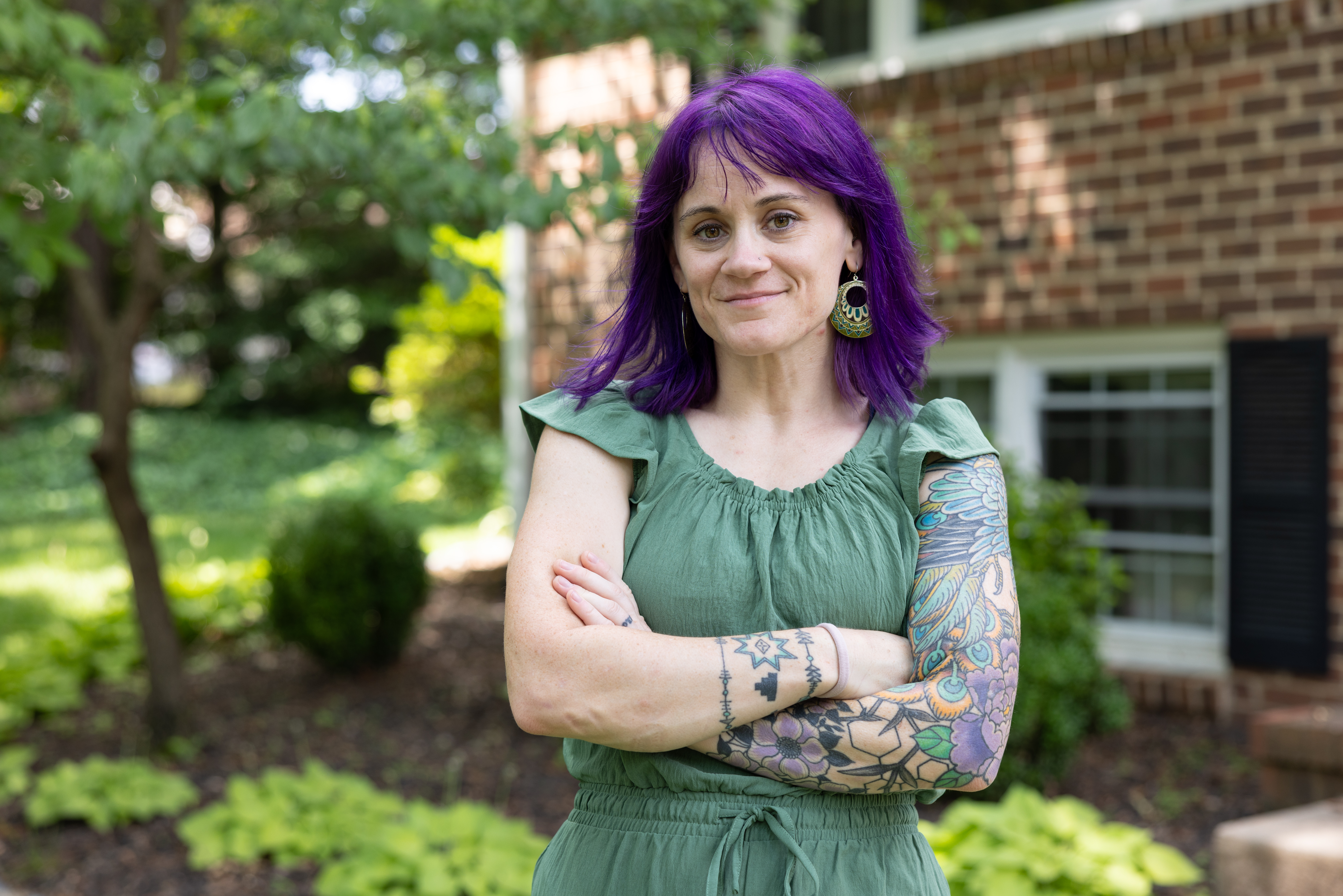Ali Foley Shenk still remembers the panic when her 10-year-old son, Dean, finished a 20-ounce box of raisins in the seconds the cupboard was left unlocked. They rushed to the emergency room, fearing a dangerous bowel impaction.
The irony stung: When Dean was born, he was so weak and floppy he survived only with feeding tubes because he couldn’t suck or swallow. He was diagnosed as a baby with Prader-Willi syndrome — a rare disorder sparked by a genetic abnormality. He continued to be disinterested in food for years. But doctors warned that as Dean grew, his hunger would eventually become so uncontrollable he could gain dangerous amounts of weight and even eat until his stomach ruptured.
“It’s crazy,” said Foley Shenk, who lives in Richmond, Virginia. “All of a sudden, they flip.”
Prader-Willi syndrome affects up to 20,000 people in the U.S. The most striking symptom is its most life-threatening: an insatiable hunger known as hyperphagia that prompts caregivers to padlock cupboards and fridges, chain garbage cans, and install cameras. Until recently, the only treatment was growth hormone therapy to help patients stay leaner and grow taller, but it didn’t address appetite.
In March, the Food and Drug Administration approved Vykat XR, an extended-release version of the existing drug diazoxide choline, which eases the relentless hunger and may offer insights into the biology of extreme appetite and binge eating. This breakthrough for these patients comes as other drugs are revolutionizing how doctors treat obesity, which affects more than 40% of American adults. GLP-1 agonist medications Ozempic, Wegovy, and others also are delivering dramatic results for millions.
But what’s becoming clear is that obesity isn’t one disease — it’s many, said Jack Yanovski, a senior obesity researcher at the National Institutes of Health, who co-authored some of the Vykat XR studies. Researchers are learning that obesity’s drivers can be environmental, familial, or genetic. “It only makes sense that it’s complex to treat,” Yanovski said.
Obesity medicine is likely heading the way of treatments for high blood pressure or diabetes, with three to five effective options for different types of patients. For example, up to 15% of patients in the GLP-1 trials didn’t respond to those drugs, and at least one study found the medications didn’t significantly help Prader-Willi patients.
Yet, researchers say, efforts to understand how to treat obesity’s many causes and pathways are now in question as the Trump administration is dismantling the nation’s infrastructure for medical discovery.
While Health and Human Services Secretary Robert F. Kennedy Jr. promotes a “Make America Healthy Again” agenda centered on diet and lifestyle, federal funding for health research is being slashed, including some grants that support the study of obesity. University labs face cuts, FDA staffers are being laid off en masse, and rare disease researchers fear the ripple effects across all medical advances. Even with biotech partnerships — such as the work that led to Vykat XR — progress depends on NIH-funded labs and university researchers.
“That whole thing is likely to get disrupted now,” said Theresa Strong, research director for the Foundation for Prader-Willi Research.
HHS spokesperson Andrew Nixon said in a statement that no NIH awards for Prader-Willi syndrome research have been cut. “We remain committed to supporting critical research into rare diseases and genetic conditions,” he said.
But Strong said that already some of the contacts at the FDA she’d spent nearly 15 years educating about the disorder have left the agency. She’s heard that some research groups are considering moving their labs to Europe.
Early progress in hunger and obesity research is transforming the life of Dean Shenk. During the trial for Vykat XR, his anxiety about food eased so much that his parents began leaving cupboards unlocked.
helped stop hunger from dominating Dean’s every thought, so he now has space for
other interests — Star Wars, American Ninja Warrior, and a healthy taste for avocados
among them. (Parker Michels-Boyce for KFF Health News)

Jennifer Miller, a pediatric endocrinologist at the University of Florida who co-led the Vykat XR trials, treats around 600 Prader-Willi patients, including Dean. She said the impact she’s seen is life-changing. Since the drug trial started in 2018, some of her adult patients have begun living independently, getting into college, and starting jobs — milestones that once felt impossible. “It opens up their world in so many ways.”
Over 26 years in practice, she’s also seen just how severely the disease hurts patients. One patient ate a four-pound bag of dehydrated potato flakes; another ingested all 10 frozen pizzas from a Costco pack; some ate pet food. Others have climbed out of windows, dived into dumpsters, even died after being hit by a car while running away from home in search of food.
Low muscle tone, developmental delays, cognitive disabilities, and behavioral challenges are also common features of the disorder.
Dean attends a special education program, his mother said. He also has narcolepsy and cataplexy — a sudden loss of muscle control triggered by strong emotions. His once-regular meltdowns and skin-picking, which led to deep, infected lesions, were tied to anxiety over his obsessive, almost painful urge to eat.
In the trial, though, his hyperphagia was under control, according to Miller and Dean’s mother. His lean muscle mass quadrupled, his body fat went down, and his bone mineral density increased. Even the skin-picking stopped, Foley Shenk said.
Vykat XR is not a cure for the disease. Instead, it calms overactive neurons in the hypothalamus that release neuropeptide Y — one of the body’s strongest hunger signals. “In most people, if you stop secreting NPY, hunger goes away,” said Anish Bhatnagar, CEO of Soleno Therapeutics, which makes the medication, the company’s first drug. “In Prader-Willi, that off switch doesn’t exist. It’s literally your brain telling you, ‘You’re starving,’ as you eat.”
GLP-1 drugs, by contrast, mimic a gut hormone that helps people feel full by slowing digestion and signaling satiety to the brain.

Vykat XR’s possible side effects include high blood sugar, increased hair growth, and fluid retention or swelling, but those are trade-offs that many patients are willing to make to get some relief from the most devastating symptom of the condition.
Still, the drug’s average price of $466,200 a year is staggering even for rare-disease treatments. Soleno said in a statement it expects broad coverage from both private and public insurers and that the copayments will be “minimal.” Until more insurers start reimbursing the cost, the company is providing the drug free of charge to trial participants.
Soleno’s stock soared 40% after the FDA nod and has held fairly steady since, with the company valued at nearly $4 billion as of early June.
While Vykat XR may be limited in whom it can help with appetite control, obesity researchers are hoping the research behind it may help them decode the complexity of hunger and identify other treatment options.
“Understanding how more targeted therapies work in rare genetic obesity helps us better understand the brain pathways behind appetite,” said Jesse Richards, an internal medicine physician and the director of obesity medicine at the University of Oklahoma-Tulsa’s School of Community Medicine.
That future may already be taking shape. For Prader-Willi, two other notable phase 3 clinical trials are underway, led by Acadia Pharmaceuticals and Aardvark Therapeutics, each targeting different pathways. Meanwhile, hundreds of trials for general obesity are currently recruiting despite the uncertainties in U.S. medical research funding.
That brings more hope to patients like Dean. Nearly six years after starting treatment, the now-16-year-old is a calmer, happier kid, his mom said. He’s more social, has friends, and can focus better in school. With the impulse to overeat no longer dominating his every thought, he has space for other interests — Star Wars, American Ninja Warrior, and a healthy appreciation for avocados among them.
“Before the drug, it just felt like a dead end. My child was miserable,” Foley Shenk said. “Now, we have our son back.”

